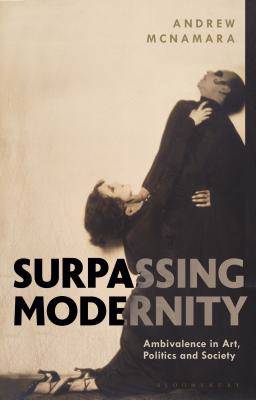
- Afhalen na 1 uur in een winkel met voorraad
- Gratis thuislevering in België vanaf € 30
- Ruim aanbod met 7 miljoen producten
- Afhalen na 1 uur in een winkel met voorraad
- Gratis thuislevering in België vanaf € 30
- Ruim aanbod met 7 miljoen producten
Zoeken
€ 60,95
+ 121 punten
Uitvoering
Omschrijving
For the past thirty to forty years, cultural analysis has focused on developing terms to explain the surpassing of modernity. Discussion is stranded in an impasse between those who view the term modernity with automatic disdain-as deterministic, Eurocentric or imperialistic-and a booming interest that is renewing the study of modernism. Another dilemma is that the urge to move away from, or beyond, modernity arises because it is viewed as difficult, even unsavoury. Yet, there has always been a view of modernity as somehow difficult to live with, and that has been said by figures we regard today as typical modernists.
McNamara argues in this book that it is time to forget the quest to surpass modernity. Instead, we should re-examine a legacy that continues to inform our artistic conceptions, our political debates, our critical justifications, even if that legacy is baffling and contradictory. We may find it difficult to live with, but without recourse to this legacy, our critical-cultural ambitions would remain seriously diminished. How do we explain the culture we live in today? And how do we, as citizens, make sense of it? This book suggests these questions have become increasingly difficult to answer.Specificaties
Betrokkenen
- Auteur(s):
- Uitgeverij:
Inhoud
- Aantal bladzijden:
- 264
- Taal:
- Engels
Eigenschappen
- Productcode (EAN):
- 9781350008342
- Verschijningsdatum:
- 29/11/2018
- Uitvoering:
- Paperback
- Formaat:
- Trade paperback (VS)
- Afmetingen:
- 137 mm x 213 mm
- Gewicht:
- 340 g

Alleen bij Standaard Boekhandel
+ 121 punten op je klantenkaart van Standaard Boekhandel
Beoordelingen
We publiceren alleen reviews die voldoen aan de voorwaarden voor reviews. Bekijk onze voorwaarden voor reviews.











